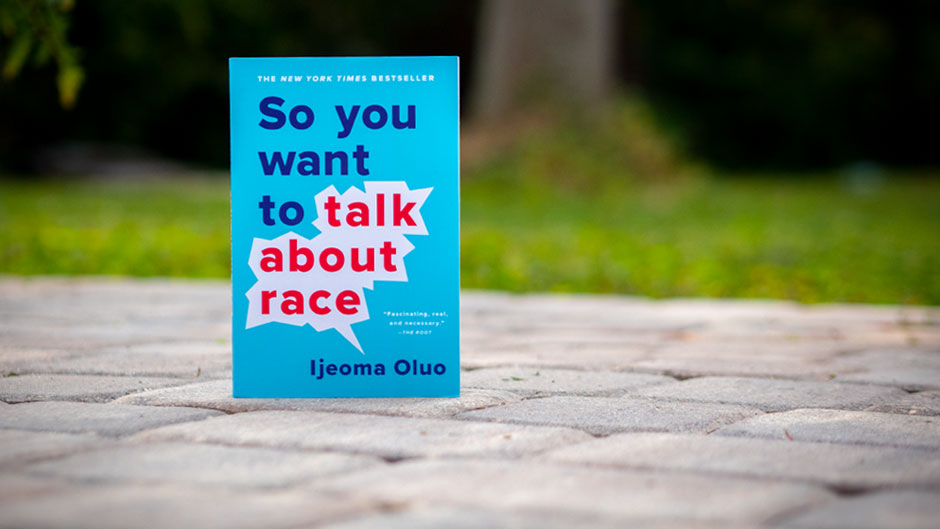The tragic deaths of George Floyd and Breonna Taylor at the hands of police and the ensuing protests from members of the Black Lives Matter movement and others—as well as the rise of radical white supremacy groups in the country—have put the issue of race relations front and center.
In order to begin to understand the issue of race, the University of Miami has chosen the book “So You Want to Talk About Race” by Ijeoma Oluo as the One Book, One U selection this year. Begun in 2017, the One Book, One U program is designed to engage the entire University community in dialogue about the human experience.
“It is a very explicit book,” said Miriam Lipsky, director of Student Affairs Assessment and Projects and adjunct faculty member at the School of Education and Human Development. “We felt it would be really useful at this time with everything that is going on. Knowing how difficult it is to talk about race, we thought that this book would be very helpful for students, faculty, and staff.”
Oluo, a Nigerian-American writer who has written extensively on race, lays out the book with chapters each posing a theme to explore. Each chapter begins with a personal anecdote, gives a scholarly take on the theme, and then explains how to discuss the issue.
Some of the chapters in the book include:
- Is Police Brutality Really about Race?
- Why Can’t I Say the “N” Word?
- Why Can’t I Touch Your Hair?
According to one reviewer, Dave Zirin, “Oluo does more than deliver tough, blunt truths about the realities of racism, power, and oppression. She also, in bracing fashion, offers a vision of hope—a message that through dialogue and struggle, we can emancipate ourselves from what she calls 'the nation's oldest pyramid scheme: white supremacy.’ ”
Lipsky, who along with Renee Callan, executive director of Student Life, taught the book in an Intergroup Dialogue class last semester, said many of the themes in the book had been brought up by her students. One particular theme was of particular interest: the issue of microaggressions—statements or actions that in indirect or subtle ways show discrimination against members of a particular group.
“That is so important because microagressions are little things, one little slight, one little comment,” said Lipsky. “People say ‘oh why did you make such a big deal about it? I did not mean it’ or ‘it was a joke I did not mean it,’ ” she added.
“But if it is your own particular social identity that is being slighted whether it is being Black, a woman, LGBTQ that is the focus of that microaggression, and you are subjected to that multiple times a week in multiple settings, it is like death by a thousand cuts,” she continued. “It is toxic.”
Every year, University Libraries prepares an Instructor Resource Guide to accompany the One Book, One U selection and to help faculty members teach the book.
This fall, University Libraries and other One Book, One U committee members launched a new initiative and invited members of the University community to meetings held over three nights to learn how to use the book in their respective areas. About 65 people attended the sessions including professors, adjuncts, graduate students, and staff members, said Roxane Pickens, director of the Learning Commons.
“We had a series of meetings where we more closely helped faculty with the concepts in the book and how they may start conversations with the book, either in whole or part,” she noted.
There are several events planned around the One Book, One U material, including a three-part discussion series hosted by The Women’s Commission and Udialogue, as well as a virtual event with the author on Feb. 18 at 7 p.m.
Lipsky hopes that members of the University community will use the book as a starting point to initiate important conversations.
Visit https://culture.miami.edu/programs/one-book/index.html for more information on events related to the One Book, One U program.

